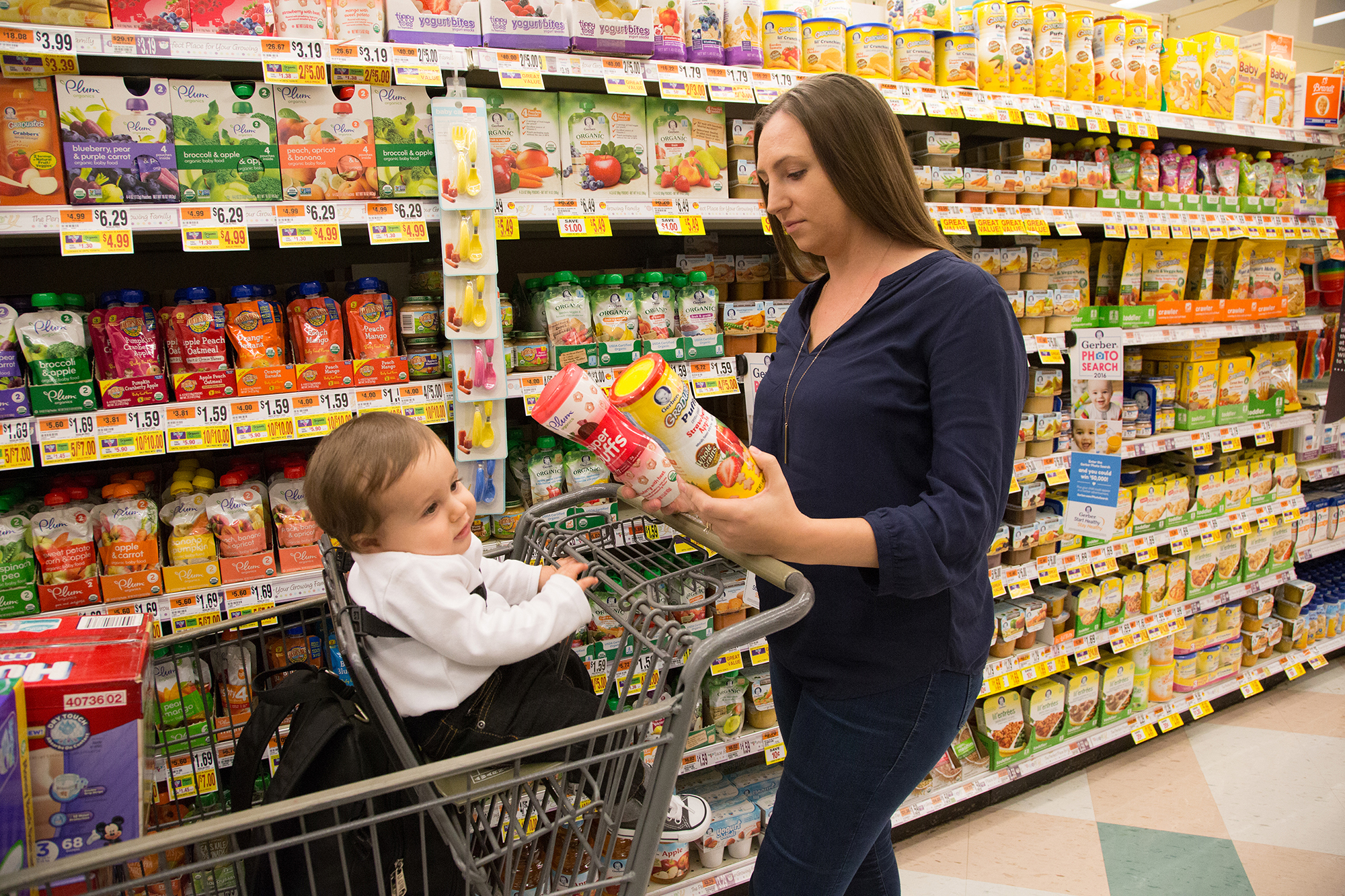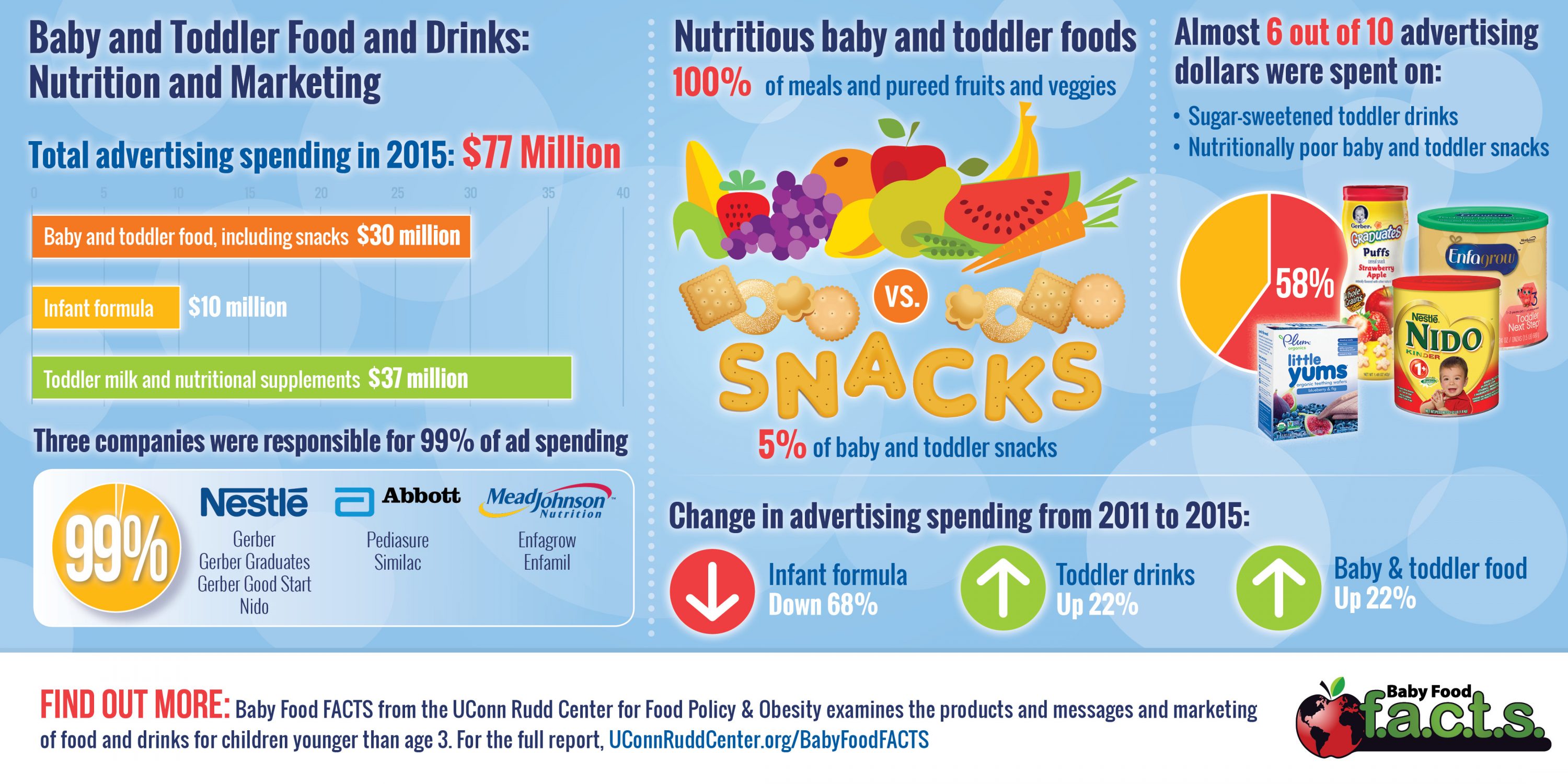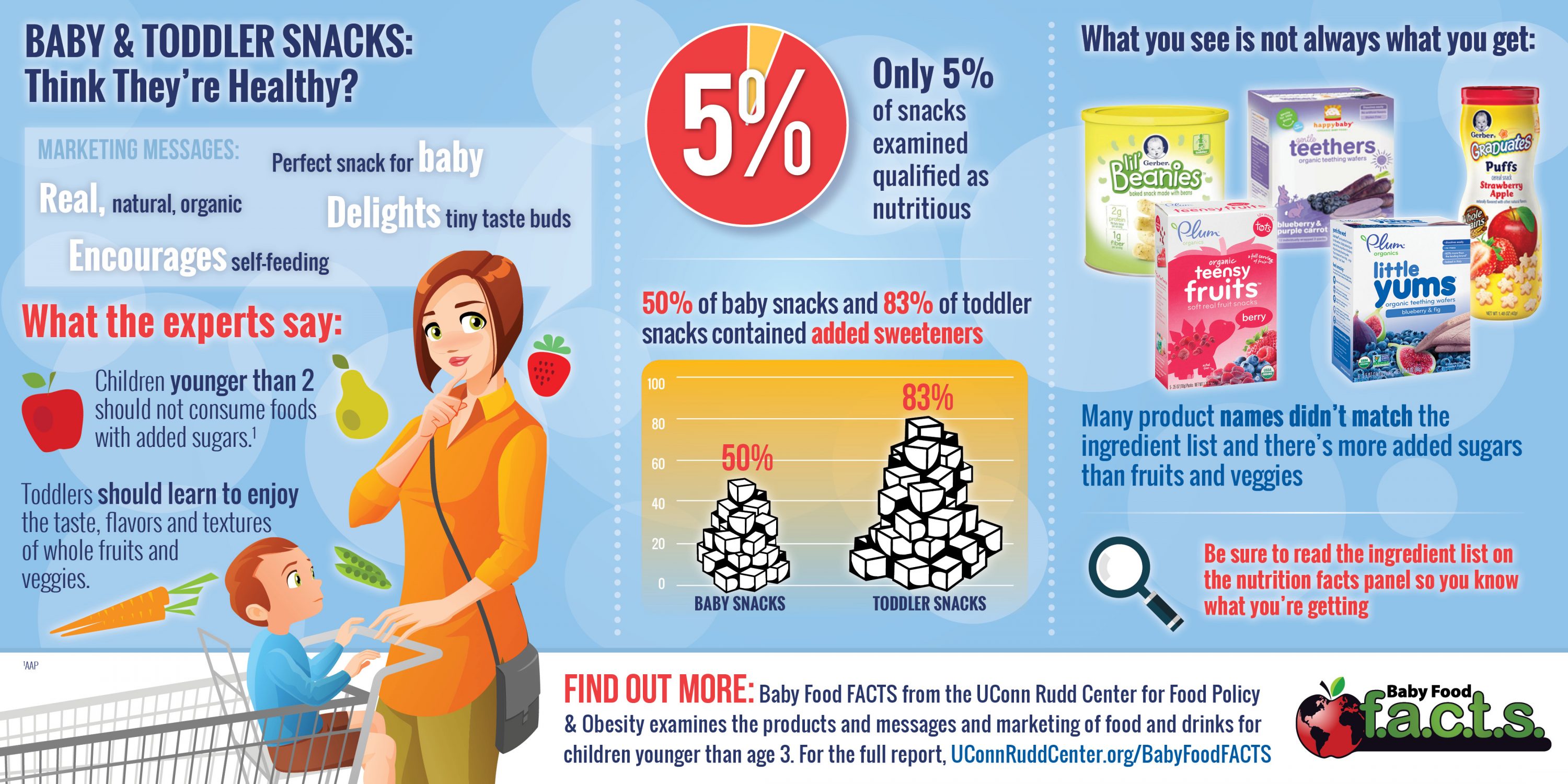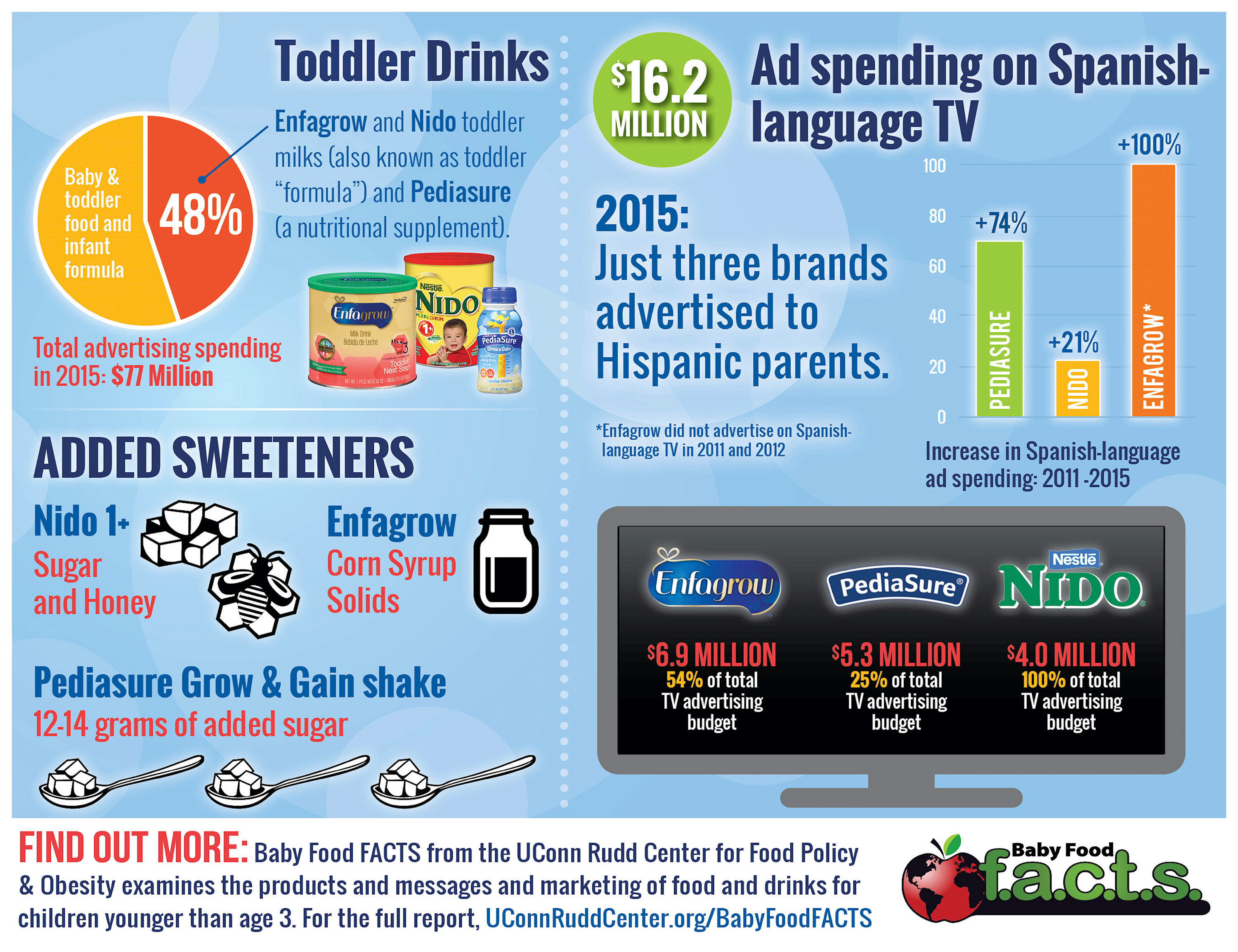Marketing for baby and toddler food and drinks often contradicts the advice of health professionals, using messages that may lead parents to believe these commercial products are healthier alternatives to breastmilk or homemade food, according to a new study by the Rudd Center for Food Policy and Obesity at UConn.
Many of the products companies are marketing for very young children contain cane sugar, sucrose, agave, and corn syrup. This must stop. — Marlene Schwartz
The new Baby Food FACTS report found that companies spent $77 million in 2015 to advertise infant formula, baby food, and toddler food and beverages to parents, primarily through TV, magazines, and the internet. By comparison, companies spent $98 million to advertise fruits and vegetables in 2015 – products intended for the entire U.S. population.
Jennifer Harris, director of marketing initiatives for the UConn Rudd Center and lead author of the report, and her Rudd Center team compiled data from syndicated media sources for baby and toddler food and drinks, including the amount spent on advertising to parents and parents’ exposure to the advertising. In addition, they analyzed the nutritional content of advertised products, and marketing messages and claims in advertising and on product packages. The team also examined advertising to Hispanic parents in Spanish-language media.
Key Findings: Positive Outcomes
- The majority of baby and toddler foods offered by companies examined in this report were fruits, vegetables, and meals, and all were nutritious choices for babies and toddlers. These products include pureed fruits and vegetables, and mixed foods that typically include fruits and vegetables plus grain or dairy ingredients.
- Also on a positive note, the amount spent to advertise infant formula through TV and magazines declined substantially between 2011 and 2015, dropping from more than $30 million to less than $10 million.
“There are some bright spots with respect to companies marketing healthier products. Beech-Nut and Gerber offer only nutritious baby foods, and market these products in a way that supports expert recommendations on best practices for feeding babies,” says Harris. “We applaud these companies for doing the right thing and encourage others to follow their example.”
Key Findings: Opportunities for Improvement
- Nearly 60 percent of advertising dollars promoted products that are not recommended for young children, including sugar-sweetened toddler milk (often marketed as toddler “formula”), nutritionally poor snack food, and Pediasure, a high-calorie liquid nutrition supplement aimed at young children. These advertisements emphasize individual nutrients and supposed benefits for young children’s mental and physical development. However, parents who follow expert recommendations for feeding young children do not need to purchase many of these products.
- For example, experts do not recommend serving products with added sugar to children under two. Yet research results show that 50 percent of baby snack food and 83 percent of toddler snack food products studied contain added sweeteners. Toddler milk products also contain added sweeteners, including sugar, glucose syrup solids, honey, and corn syrup. Moreover, the Academy of Family Physicians and the American Academy of Pediatrics do not recommend serving toddler milk, as it has no proven advantage and is more expensive than serving whole milk to toddlers over one year old. Similarly, Pediasure, aimed at toddlers, is high in calories and contains as much sugar as an 8-ounce sports drink.
- Additionally, marketing for infant formula often includes promises of benefits for infants, such as less crying, better digestion, and brain development, which may lead parents to believe that these products are more beneficial than breastmilk. Companies are not currently required to support these claims with scientific research.
- Targeting Hispanic parents with products containing added sugars is especially problematic, due to higher rates of overweight and obesity among Hispanic children. Pediasure nutritional supplement and Enfagrow and Nido toddler milks were the only brands examined in this research marketed on Spanish-language TV in 2015, with companies spending $16 million – 43 percent of their Spanish-language TV advertising – to promote these products.
Says Harris, associate professor of allied health sciences, “Our analysis shows that marketing for baby and toddler food, infant formula, and toddler milk and nutritional supplements often contradicts expert guidance and in some cases encourages parents to feed their young children products that may not promote healthy eating habits.”
Valerie Duffy, professor and director of UConn’s Graduate Program in Allied Health Sciences in the College of Agriculture, Health, and Natural Resources, collaborated with the Rudd Center and contributed her expertise on the development of healthy dietary preferences and eating habits for babies and children under age 3 in analyzing the findings.
The study was funded by a grant from the Robert Wood Johnson Foundation and released today at the American Public Health Association’s 2016 annual meeting and expo in Denver, Colo. The information in this study provides tools to help parents and caregivers establish healthy eating habits for their children at a young age, and counteract misinformation that may be communicated through marketing of baby and toddler food and drink products.
“Babies and toddlers should not consume any added sugar,” says Marlene Schwartz, UConn Rudd Center director and a report author. “But many of the products companies are marketing for very young children contain cane sugar, sucrose, agave, and corn syrup. This must stop. We call on companies to use their marketing muscle to promote only their healthiest products made of simple ingredients that will help children develop an appreciation of a range of flavors and textures.” Schwartz is a professor of human development and family studies in the College of Liberal Arts and Sciences.
Baby Food FACTS is the latest in a series of Rudd Center FACTS reports that reveal marketing techniques and the nutritional quality of children’s food and beverage items.






